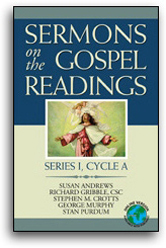SermonStudio
Jesus Cures Our Spiritual Blindness
Sermon
Sermons on the Gospel Readings
Series I, Cycle A
Anne Mansfield Sullivan was a miracle worker who overcame obstacles in seeking to assist others. Partially blind from birth, she managed to overcome this handicap and graduated from the prestigious Perkins School for the Blind in Boston. The miracle of Anne Sullivan's life, however, had very little to do with her own handicap, but it had everything to do with the multiple handicaps of a young girl. The miracle began to be manifest on March 2, 1887, when twenty--year--old Anne Mansfield Sullivan met six--year--old Helen Keller.


